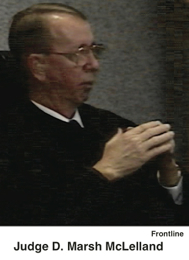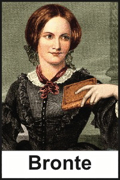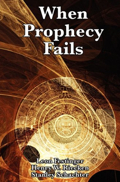Rascals case in brief
In the beginning, in 1989, more than 90 children at the Little Rascals Day Care Center in Edenton, North Carolina, accused a total of 20 adults with 429 instances of sexual abuse over a three-year period. It may have all begun with one parent’s complaint about punishment given her child.
Among the alleged perpetrators: the sheriff and mayor. But prosecutors would charge only Robin Byrum, Darlene Harris, Elizabeth “Betsy” Kelly, Robert “Bob” Kelly, Willard Scott Privott, Shelley Stone and Dawn Wilson – the Edenton 7.
Along with sodomy and beatings, allegations included a baby killed with a handgun, a child being hung upside down from a tree and being set on fire and countless other fantastic incidents involving spaceships, hot air balloons, pirate ships and trained sharks.
By the time prosecutors dropped the last charges in 1997, Little Rascals had become North Carolina’s longest and most costly criminal trial. Prosecutors kept defendants jailed in hopes at least one would turn against their supposed co-conspirators. Remarkably, none did. Another shameful record: Five defendants had to wait longer to face their accusers in court than anyone else in North Carolina history.
Between 1991 and 1997, Ofra Bikel produced three extraordinary episodes on the Little Rascals case for the PBS series “Frontline.” Although “Innocence Lost” did not deter prosecutors, it exposed their tactics and fostered nationwide skepticism and dismay.
With each passing year, the absurdity of the Little Rascals charges has become more obvious. But no admission of error has ever come from prosecutors, police, interviewers or parents. This site is devoted to the issues raised by this case.
On Facebook
Click for earlier Facebook posts archived on this site
Click to go to
Today’s random selection from the Little Rascals Day Care archives….
Click for earlier Facebook posts archived on this site
Click to go to
Today’s random selection from the Little Rascals Day Care archives….
Convictions overturned, judge angrily exited
 July 5, 2014
July 5, 2014
“The Burlington judge who has presided over the the Little Rascals Day Care Center case since 1990 resigned in disgust the day after the state Supreme Court refused to review (the overturning of) two convictions.
“D. Marsh McLelland, a retired Superior Court judge, said in a letter dated Sept. 8 that the court’s refusal to review the cases ‘is legally and morally reprehensible.’
“McLelland’s letter to Chief Justice Burley Mitchell said the refusal to review a Court of Appeals order for a new trial raised the term technicality to new heights….”
– From “Judge quits Little Rascals case” from the Associated Press (Sept. 22, 1995)
I imagine that the “technicality” comment was from a direct quote, although I haven’t been able to find either McLelland’s original letter or a more substantial account. It’s no wonder he felt humiliated – the Court of Appeals decision had laid bare his indifference to the rights of the defendants.
Regardless, McLelland’s resignation proved irrelevant, as prosecutors decided not to retry Bob Kelly and Dawn Wilson.
An antipodal view: What would Bronte have thought?
 Feb. 10, 2012
Feb. 10, 2012
“(The scene of children screaming invective at a prison-bound Bob Kelly) was… the graphic heart of the documentary….
“The car pulled away, and they began to giggle self-consciously. A second or two of awkward silence heightened the artificiality of the moment, the sense of a construct that the girls fully understood. Then an older woman (presumably a mother) moved into the silence, and began to clap and cheer. A few others joined in in desultory fashion. ‘Let’s go get something (to) eat,’ said the mom….
“By chance, I had just finished reading ‘The Professor,’ a minor novel of Charlotte Bronte’s. Like most Bronte novels it was laced with leisurely reflections, and this one struck me powerfully enough to note down: ‘Human beings – human children especially – seldom deny themselves the pleasure of exercising a power which they are conscious of possessing, even though that power consists only in a capacity to make others wretched.’
“As those children shrieked at Bob Kelly through the glass of the police car window, I wondered if there wasn’t more than a whiff of that pleasure in power in the air.
“And then I remembered this town is called Eden, and we’ve known for a long while that the darnedest things happened in Eden.”
in the Canberra (Australia) Times, Oct. 18, 1998
How much like Penn State were day-care cases?
Jan. 11, 2012
“It’s worth remembering, in the 1980s we had a whole spate of false accusations of… sexual abuse of children. The McMartin Preschool, all those supposed satanic cults in day care centers, turned out to be false…. It’s worth it to remind people of that.”
– Legal analyst Jeffrey Toobin, interviewed on CNN (Nov. 15) about the Penn State case
In fact, deep distinctions separate Penn State and the “multi-victim, multi-offender” – MVMO, in the sex-crime argot – accusations typified by McMartin and Little Rascals.
Since 1995, Ontario Consultants on Religious Tolerance has investigated 40 alleged MVMOs at 24 locations around the world. Number of substantiated instances of ritual abuse: zero.
According to its research, “Any criminal acts were non-ritual abuse by a single perpetrator… Almost all the crimes with which people were charged never happened.”
Regardless, Toobin’s reminder is a welcome counterpoint to the Judge Nancy Grace school of instant verdicts.
The limits of ‘unequivocal and undeniable evidence’
 April 1, 2013
April 1, 2013
“Suppose an individual believes something with his whole heart; suppose further that he has a commitment to this belief, that he has taken irrevocable actions because of it; finally, suppose that he is presented with evidence, unequivocal and undeniable evidence, that his belief is wrong; what will happen?
“The individual will frequently emerge, not only unshaken, but even more convinced of the truth of his beliefs than ever before….”
– From “When Prophecy Fails” by Leon Festinger, Henry Riecken and Stanley Schachter (1956)
The three social psychologists studied the refusal of a cult of UFO believers to accept that their belief in an imminent apocalypse had been proven false. Seth Mnookin usefully dusts off this case in “The Panic Virus: A True Story of Medicine, Science and Fear,” his 2011 expose of the groundless claim that childhood vaccination causes autism.
Before the day-care ritual-abuse mania ran its course, its theorists and trophy hunters clung ever more tightly to a belief system with no rational means of support. Long after the phoniness of the Little Rascals prosecution had become clear to the world, Nancy Lamb managed to conjure up an unrelated abuse charge against Bob Kelly. And even today…











0 CommentsComment on Facebook